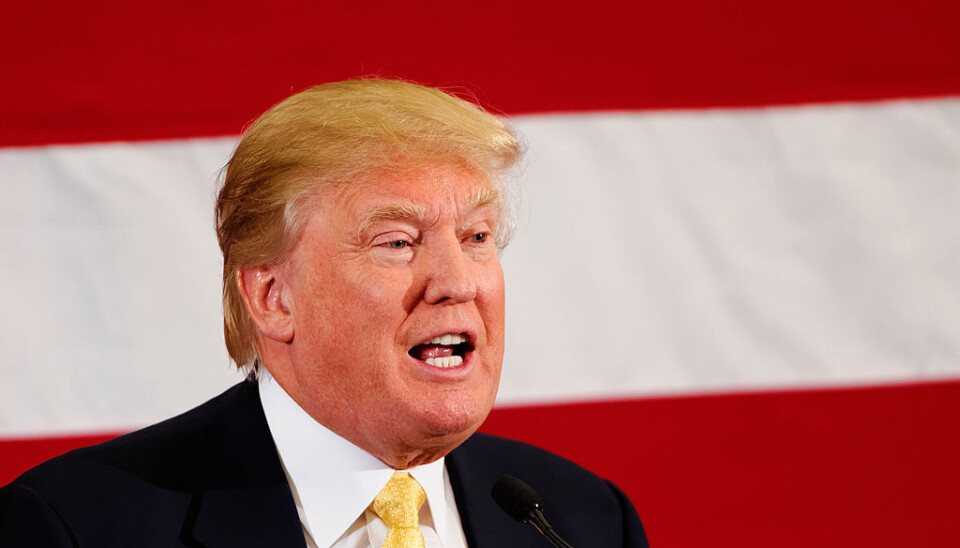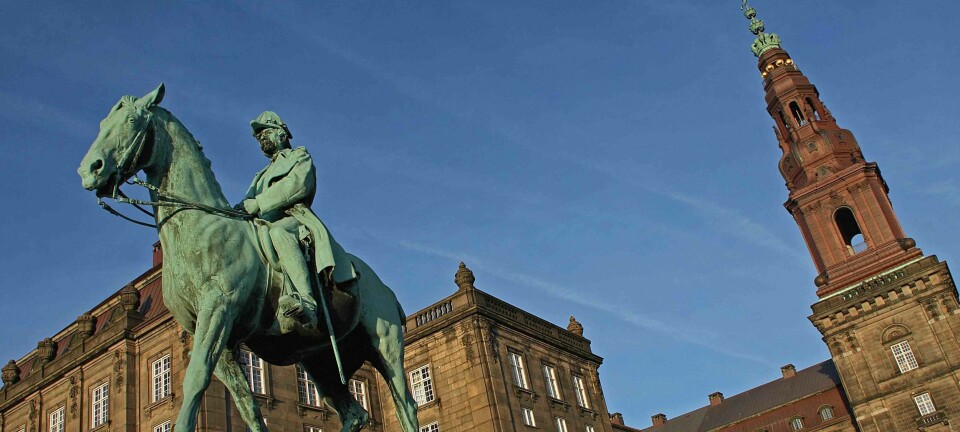An article from Norwegian SciTech News at NTNU

Trump could be a good president
After the Republican convention in July we will be seeing another side of Donald Trump. The circus will be toned down, and we’ll get to experience a presidential nominee who will speak far more thoughtfully, according to one professor.
Most of us have felt shocked by some of the statements that the presumptive Republican presidential nominee Donald Trump has dished out in his campaign so far. He has been accused of being a fraudulent liar who uses falsehoods to convince his followers. The American TV host John Oliver called Trump a “bullshit artist”— and NTNU Professor of Political Science, Torbjørn Knutsen, agrees with this assessment.
“A ‘bullshit artist’ is a person who speaks incessantly to promote himself. The content of what the person says – regardless of whether it’s true or not – doesn’t matter as long as the public’s attention is directed towards the speaker. Trump has been a ‘bullshit artist’ throughout the campaign to date. And this tactic has been effective,” says Knutsen.
This will change when Trump officially becomes the Republican presidential nominee.
“When he settles into the political spectrum, he’ll choose a spot just to the right of centre and will deliver speeches with more meaningful content and a clearer political message. Donald Trump is an extreme pragmatist. It’s quite possible he’s going to be a good politician and a good president. I don’t think we should take all his nonsense in the nominating process as a sign of what will happen in the presidential campaign,” says Knutsen.
Trump took everyone by surprise
Donald Trump is an independent candidate who has not been welcomed by the leaders of the Republican Party. His success has taken most people by surprise, including political analysts and pundits. Norman Ornstein is one of very few US observers who predicted that Trump would become the Republican presidential nominee.
“Ornstein saw early on where things were headed: The Republican Party shot itself in the foot and created an electorate that has an intense distrust of the Republican Party’s own message. Ornstein thought an outsider in the party would come sweeping in, and that’s what’s happened,” Knutsen says.
He believes Trump’s success caught the political analysts and pundits off guard because they were too attached to past election statistics and expected things to continue as before. As a result, they overlooked important aspects of the current societal unrest.
“The fact that Trump became the Republican nominee and independent Bernie Sanders lasted so long in the Democratic nominating process shows that there have been major changes in US politics. There’ve been independent candidates in US presidential elections before, but the party that the independent candidate left has always suffered,” says Knutsen.
He points to Ross Perot who broke away from the Republican Party, ran as an independent presidential candidate in 1992 and ruined George H. W. Bush’s re-election hopes.
Although the Republican Party leadership hasn’t wanted Trump as a candidate, Knutsen has no doubt that Trump is going to be hailed by the party during the convention in July.
“Democracy ran amok in the Republican Party, and the party lost control of the nomination process and which candidates could run under the party’s banner, but the party has always had strict party discipline. Trump became the party’s candidate through a democratic process, and during the convention, party discipline will kick in. The party leadership will hold their noses and stand behind Trump. He’ll have the support of the party,” says Knutsen.
Sanders wants to create a long-term movement
Knutsen believes that Hillary Clinton will also shift more towards the political centre when she officially becomes the Democratic presidential nominee during the party’s national convention in July.
“It will be a miracle if Clinton doesn’t become the Democratic presidential nominee. Her problem is that she’s unpopular and a divisive person—even within her own party. It will be interesting to see how the party reacts to her candidacy. Most people thought that Clinton would win, and that Sanders would give up early in the presidential primaries, but that didn’t happen,” says Knutsen.
He thinks Bernie Sanders has had two thoughts going: He’s tried to collect as many delegates as he can, in order to get their votes in a future administration. And then he’s tried to create a movement that over time can influence the mid-term elections in 2018 and presidential elections in 2020 and 2024.
“Sanders recognizes that the two-party system in the US is too limited. Many people who are voting for Trump think the same thing. Sanders wants to create a movement that is independent of the two established parties, and that could change American politics. Creating this kind of a movement isn’t an unrealistic ambition. Sanders sees how the importance of politicians in the United States has diminished and how market forces drive decision making more and more. Establishing a new party is a near impossible task, so Sanders is focusing on leaving behind a movement that can change the Democratic Party from within,” says Knutsen.
He points to Sanders’ central campaign issue: the enormous economic disparities in the United States. Large parts of American society are falling through the cracks, and they’re not being rescued by any safety net.
Knutsen thinks Sanders probably isn’t surprised that a billionaire has become the Republican presidential candidate.
Who’ll become Vice-President?
Knutsen doesn’t doubt that a party atmosphere will reign at both conventions in July, despite the circus and mud-slinging that have characterized the nominating process. He also points out that the national conventions celebrate not only the presidential, but also the vice-presidential nominees.
“Speculation about who [the vice-presidential nominees] will be is just going to increase in the next few weeks. It’s been rumoured that Clinton would like to choose a woman, but women candidates for both president and vice-president are likely too radical for the United States. She’ll probably choose a man, but I don’t think that it will be Bernie Sanders. He comes from little Vermont, and the vice president usually comes from one of the larger states. Trump might choose a woman, but I don’t think it will be Sarah Palin. She’s another ‘bullshit artist’ who made it surprisingly far in American politics,” says Knutsen.
Both political conventions start with a big political keynote speech. The parties, and not the presidential candidates, choose this speaker.
“The parties each select one of their greatest talents to give this speech on the first day of the convention. It is worth noting whom they choose, because the choices say something about what direction the party wants to go. Several US presidents have once had this role. Barack Obama got his breakthrough into national politics as the keynote speaker at the Democratic Party’s 2004 national convention,” says Knutsen.
Knutsen is clear on one thing: American politics is changing so much that it’s difficult to predict what will happen in the future based on what we know today. The nominating process is a perfect example.
































